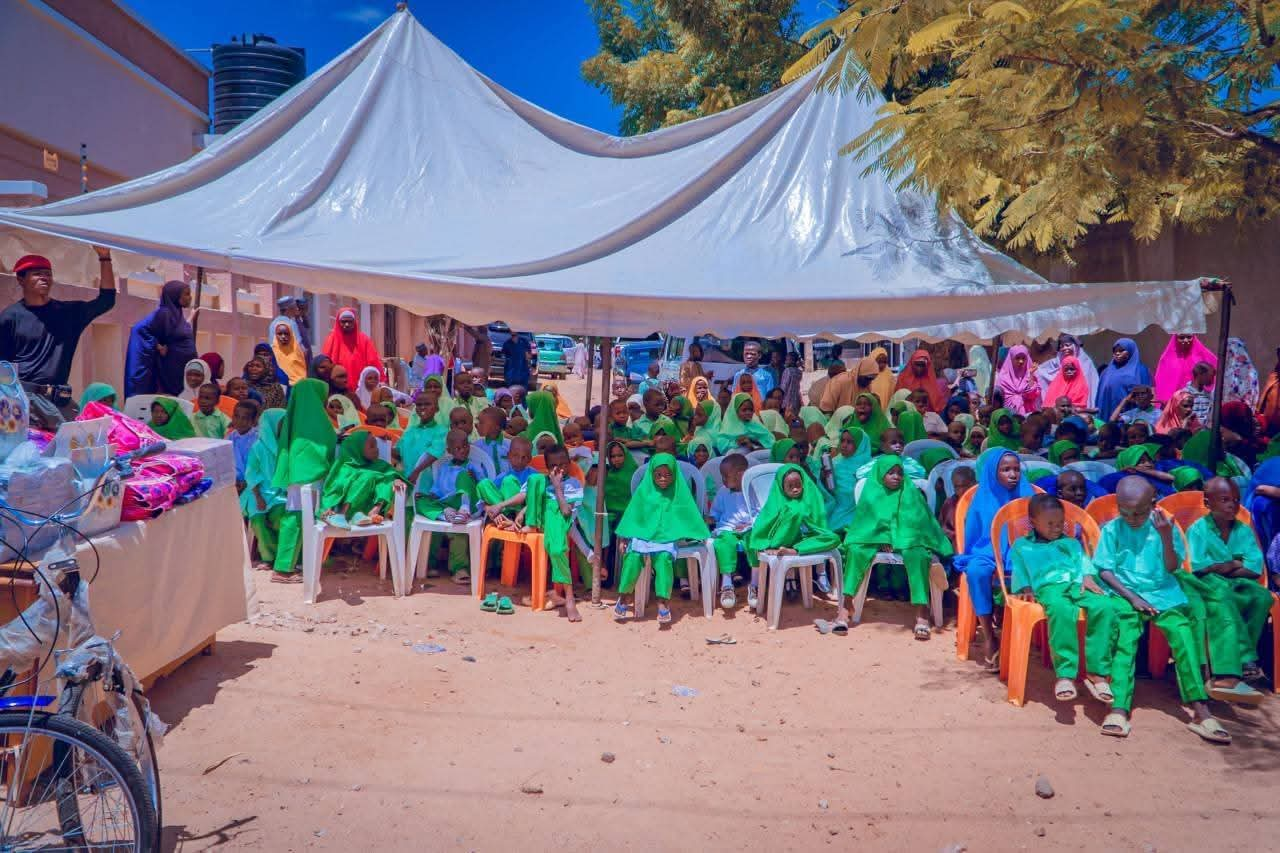By Tokunbo2
Copyright thesun

From Abdulrazaq Mungadi, Gombe
In Gombe State, the struggle to keep children in classrooms remains one of the most pressing social challenges. Despite years of intervention, thousands of children are still out of school, leaving stakeholders in the education sector grappling with how to reverse the trend.
Nigeria has one of the largest numbers of out-of-school children globally, and Gombe contributes to the statistics. Hauwa’u Yahaya Umaru, a member of the Gombe State Universal Basic Education Board (SUBEB), recently warned that the figures are not only disturbing but also demand urgent action.
For many families in Gombe, poverty is often regarded as one of the major obstacle to education and school attendance. It is said that most of the out of school children are children pulled out or never enrolled just to support household survival. From laboring in farms to hawking in the streets, the daily struggle for income overshadows the importance of education in several families.
“I want my children to be in school, but we survive from petty trade I do and manage with them,” said Amina Ibrahim, a mother of four in Jekadafari, Gombe metropolis. She stated that her eldest daughter is just 12 and that she combines hawking with irregular school attendance.
According to experts, cultural practices also weigh heavily. In rural areas, early marriage deprives many girls of schooling. For boys, the almajiri system of Quranic learning often replaces formal education, leaving them without basic literacy.
Government Push and Persistent Gaps
In the last few years, the Gombe state government has made efforts to confront the problem by constructing blocks of classroom and renovation of dilapidated schools as well as school feeding programs to attract children. Governor Muhammadu Inuwa Yahaya has consistently emphasized education as a cornerstone of his administration. He also declared a state of emergency on education when took over as governor in 2019.
However, the challenges persist. As stakeholders identify teacher shortages, low motivation, and overcrowded classrooms as a challenge that drag on progress. The quality of education is also under pressure, forcing some parents to question whether sending children to school offers any real benefits.
Misilli Foundation Steps In
Amid these difficulties, the Misilli Community Development Foundation emerged as a key player in the drive to return children to school. The Foundation, established by the Director General (DG) of Press Affairs at Gombe state government house, Ismaila Uba Misilli, has invested directly in tackling barriers to enrollment and retention of children of schooling age.
In the last year three years, the Foundation has sponsored over 200 students with school enrollment, uniforms, exercise books, and bicycles for male pupils who trek long distances to attend classes and a special gift packages that is equivalent the value of a bicycle was provided for female pupils to ensure fairness and inclusivity.
In a unique twist, the Foundation also track and honor parents with a special package for showing commitment in sending their children to school daily. This according to the foundation, is to reinforce the message that education is a shared family responsibility. The gift package was unavailed during a ceremony to mark the 2025 and 3rd edition of its Primary School Enrolment Program for Poor and Vulnerable Children in Gombe.
Community leaders and education officials have commended the foundation’s interventions as practical incentives that not only ease financial burdens but also promote behavioral change. “When children receive uniforms and bicycles, and parents are rewarded for doing the right thing, it sends a strong signal to the community that education matters,” the Gombe. SUBEB official noted.
Civil Society and Community Advocacy
Beyond Misilli Foundation, other NGOs and civil society groups have joined forces to tackle the problem. The Gombe Network of Civil Society (GONET) says it has conducted series of sensitization campaigns, engage traditional rulers, and use community gatherings to advocate for schooling.
According to the Chairman of the GONET, Ibrahim Yusuf (3000), there is need to draw mosques and churches into the campaign and get more clerics to urge parents to see education not as a rival to culture or religion but as a complementary force that secures children’s futures.
The High Stakes
The cost of inaction is enormous. Children deprived of education are more vulnerable to child labor, early marriage, and recruitment into criminal or extremist activities. The wider impact is felt in economic stagnation and rising social insecurity.
“An uneducated child today will become a burden to society tomorrow,” Ambassador Dauda Stanley a civil servant at Ministry of Foreign Affair warned while speaking during the 2025 enrollment circle by the Misilli foundation. According to him, education is not charity, it is survival.
Gombe’s reliance on agriculture and the state’s ambition to diversify into new sectors such as technology and entrepreneurship hinge on a literate and skilled workforce. Without urgent reforms, the state risks falling further behind, that’s according to a retired teacher Malam Aliyu of Tumfure community.
The Road Ahead
Experts insist that tackling the crisis requires a multi-layered approach, which include a sustained government investment, community-driven advocacy, incentives such as school feeding and scholarships as well as close monitoring to ensure accountability of funds and mechanism to track pupils performance in school so as to ensure quality control.
A Glimmer of Hope
Despite the challenges, initiatives like those of the Misilli Foundation demonstrate that progress is possible when communities, government, and civil society work together. More importantly, they show that the education battle is not only winnable but also essential to a long-term stability and growth.
According to Ismail Uba Misilli, “We are making work public not to show off but to encourage others and show that we can support and complement what governments are doing for growth and development of our society. If this foundation care for 50 children today, another cared 30 or 10, 5 or even one we will be helping our communities to grow and develop.”
Meanwhile, at the foundation’s award and enrollment ceremony, a young girl sponsored spoke of her dream to become a doctor. Her words captured the promise education holds if the right steps are taken. “I want to help sick people in our community,” the primary three pupil said with pride.



